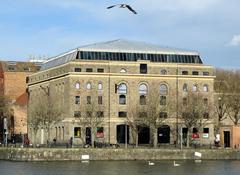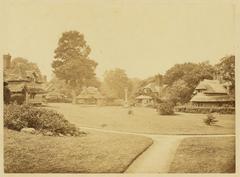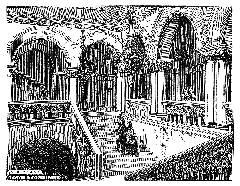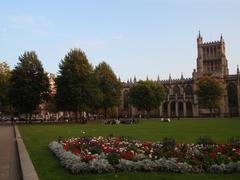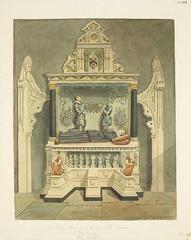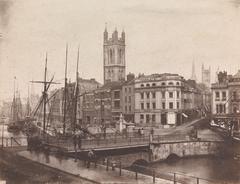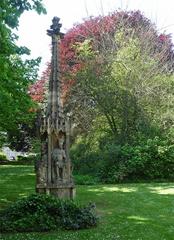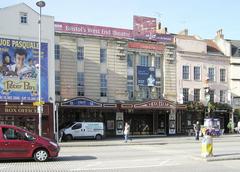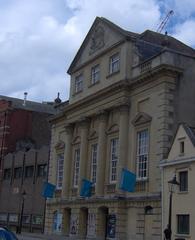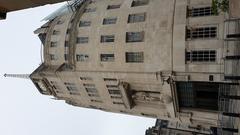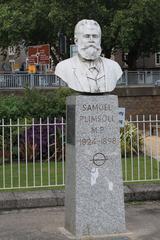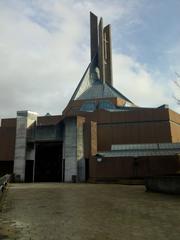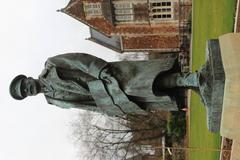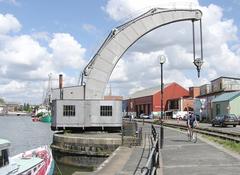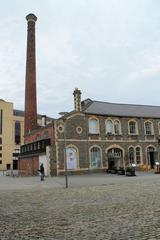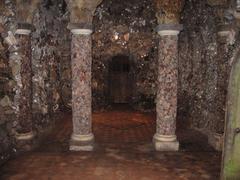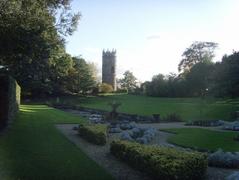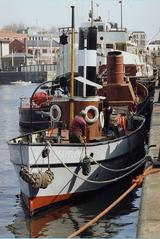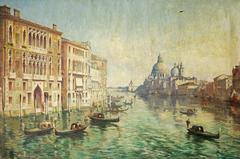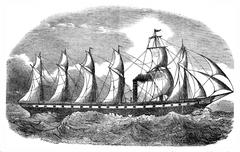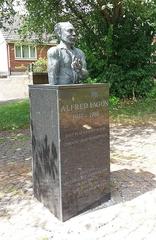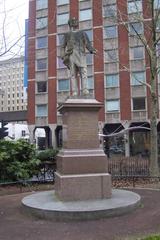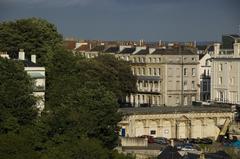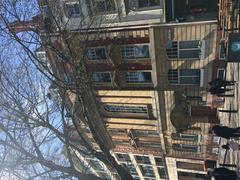Palestine Museum and Cultural Centre Bristol: Visiting Hours, Tickets, and Historical Sites Guide
Date: 14/06/2025
Introduction
Located in the heart of Bristol’s vibrant city centre, the Palestine Museum and Cultural Centre is Europe’s only permanent museum devoted exclusively to Palestinian history, culture, and contemporary life. Established in 2013 by local activists and members of the Palestinian diaspora, the museum was founded to address a lack of authentic representation of Palestinian narratives in the UK and Europe. Visitors can expect an immersive, educational journey through personal testimonies, curated artifacts, and community-led events that highlight both the challenges and the resilience of Palestinians from the late Ottoman era through to the present day.
Admission is free, making the museum’s rich educational resources accessible to everyone. The centre fosters intercultural dialogue, supports social justice initiatives, and serves as a hub for solidarity and awareness in Bristol—an apt location given the city’s legacy of activism and multiculturalism. Whether you’re a resident or a tourist exploring Bristol’s historical sites, the museum offers a unique opportunity to engage with Palestinian heritage often overlooked elsewhere. (Visit Bristol, Palestine Museum Official Website)
Contents
- Introduction
- Historical Background and Founding
- Visiting the Palestine Museum Bristol
- Educational Mission and Outreach
- Challenges and Resilience
- Recognition and Impact
- Frequently Asked Questions (FAQ)
- Conclusion
- References
Historical Background and Founding
Origins and Founding Vision
Founded in June 2013, the Palestine Museum and Cultural Centre was created by a diverse group of activists, educators, artists, and members of the Palestinian diaspora. Their goal was to foster dialogue, preserve cultural heritage, and serve as a repository for Palestinian stories often marginalized in UK discourse. Bristol’s tradition of activism and multiculturalism provided fertile ground for the museum’s grassroots beginnings, with community members actively shaping the museum’s vision and programs (Visit Bristol).
Historical Context and Significance
The museum’s narrative spans from the late 19th-century Ottoman period through the British Mandate, the Nakba of 1948, and subsequent conflicts, up to contemporary life in Palestine and the diaspora. Exhibits explore the complexities of Palestinian identity, heritage, and resilience, highlighting both struggles and achievements. As the only institution of its kind in Europe, the museum provides a vital platform for Palestinian voices and fosters cross-cultural dialogue in Bristol’s progressive environment.
Collection Development and Notable Exhibits
The museum’s collection has grown through community donations, featuring traditional clothing, household items, photographs, documents, and contemporary artwork. Personal stories and oral histories are integrated throughout, offering intimate perspectives on Palestinian experiences. Notable installations include a symbolic replica of the separation wall, multimedia displays on the realities of occupation, and rotating exhibitions on themes such as Palestinian cuisine, music, and literature.
Visiting the Palestine Museum Bristol
Location and Accessibility
Address: 13-15 Chessel Street, Bristol BS1 5BQ.
The museum is centrally located, easily accessible by public transport, and within walking distance of many other Bristol historical sites. However, please note the museum is located on an upper floor accessible only by stairs and is not wheelchair-friendly. Visitors with mobility concerns should contact the museum in advance for more information (Palestine Museum Official Website).
Visiting Hours
- Regular Hours: Saturdays and Sundays, 11:00 am – 6:00 pm
- Weekday Visits: Available by prior arrangement (at least two days’ notice for individuals; two weeks for groups)
Tickets and Admission
- Admission: Free of charge; donations are encouraged to support the museum’s volunteer-run operations.
Guided Tours and Events
Guided tours are available by request, providing deeper insight into the exhibits. The museum also hosts regular talks, film screenings, workshops, and cultural events—check their official events page or social media channels for the latest schedule.
Fair Trade Shop
Support Palestinian communities by purchasing fair trade olive oil, dates, za’atar, and handicrafts from the museum shop.
Travel Tips
- Parking: Limited street parking nearby; public transport is recommended.
- Duration: Allow at least one hour for a thorough visit.
- Nearby Attractions: Bristol Museum & Art Gallery, SS Great Britain, M Shed Museum, and Harbourside.
Educational Mission and Outreach
Education is central to the museum’s mission. Programs cater to schools, universities, and community organizations, offering guided tours, interactive workshops, and lectures by guest speakers. The museum also provides digital resources—virtual tours and online exhibitions—to reach wider audiences and support continued learning (PMCC Education).
Challenges and Resilience
Despite funding constraints and political sensitivities, the museum has thrived due to the dedication of its volunteer team and community supporters. The COVID-19 pandemic prompted a pivot to enhanced digital engagement, furthering the museum’s commitment to accessibility and outreach.
Recognition and Impact
The Palestine Museum and Cultural Centre has earned recognition from local, national, and international organizations. Visitor feedback highlights the museum’s welcoming atmosphere, informative exhibits, and emotional storytelling. It serves as a key site for cultural exchange and advocacy, amplifying Palestinian voices and building bridges across communities (Al-Monitor).
Frequently Asked Questions (FAQ)
What are the opening hours?
Saturdays and Sundays, 11:00 am – 6:00 pm. Weekday visits by appointment.
Is there an admission fee?
No. Admission is free; donations are welcomed.
Is the museum accessible?
The museum is on the upper floor and only accessible by stairs. It is not wheelchair-friendly.
Are guided tours available?
Yes, by prior request—especially for groups.
Is photography allowed?
Ask staff before taking photos, as restrictions may apply.
Is the museum suitable for children?
Yes, but some content may require parental guidance.
Is there parking nearby?
Limited street parking is available; public transport is recommended.
Can I visit virtually?
Yes. Explore the virtual tour online.
Conclusion
The Palestine Museum and Cultural Centre in Bristol is a pioneering, volunteer-driven institution offering a unique window into Palestinian history, culture, and contemporary realities. From traditional artifacts and multimedia installations to educational programs and fair trade initiatives, the museum provides a meaningful experience for all visitors. Make the most of your visit by checking latest hours, booking guided tours, and supporting the museum’s mission through donations or shop purchases.
Enhance your cultural exploration of Bristol by visiting nearby historical sites, and stay connected with the museum’s latest updates and events through their official website and social media channels. Download the Audiala app for audio guides and further resources to enrich your visit.
References
- Palestine Museum Bristol: Visiting Hours, Tickets, and Cultural Insights, 2024, Visit Bristol (Visit Bristol)
- Explore the Palestine Museum & Cultural Centre in Bristol: Visiting Hours, Tickets, and Cultural Significance, 2024, Palestine Museum Official Website (Palestine Museum Official Website)
- Visiting Palestine Museum Bristol: Hours, Exhibitions, Tickets & Accessibility Guide, 2024, Visit West (Visit West)
- Art under Occupation, Al-Monitor, 2024 (Al-Monitor)
- PMCC Education (PMCC Education)
- Palestine Museum Bristol Virtual Tour (Palestine Museum Bristol Virtual Tour)
